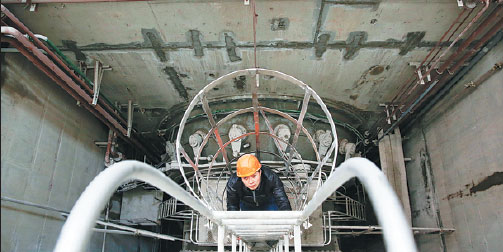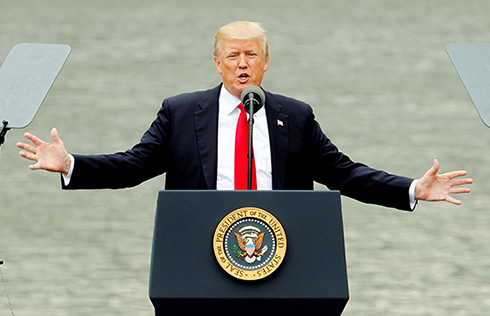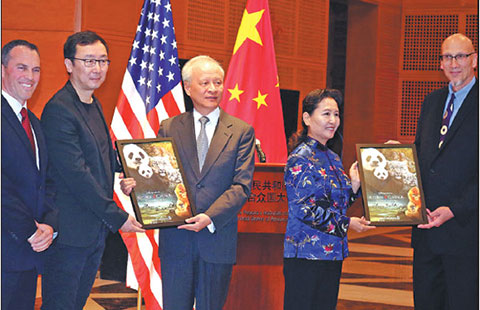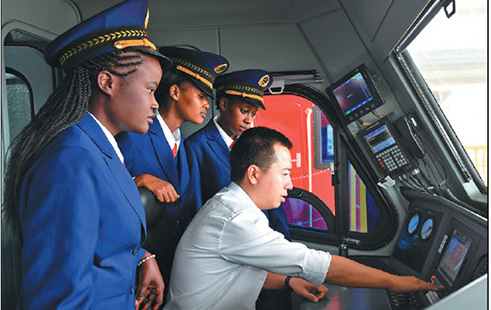Training centers to help spread technologies for hydropower
|
A worker inspects power generation facilities at the Vitebsk hydropower station, the largest in Belarus, in April. The $200 million project, built by China National Electric Engineering Co, is part of the Belt and Road Initiative. Bai Xueqi / Xinhua |
China plans to build water conservancy training centers that could offer tailored training for personnel from countries related with the Belt and Road Initiative, said a senior water resources official.
Liu Zhiguang, director of the Ministry of Water Resources' department of international cooperation, science and technology, said that these centers will integrate both scientific research and training.
They could offer targeted training on small hydroelectric facilities, electrification of rural areas, flood control and drought relief, water-saving irrigation, planning and management of water conservancy, and the design, construction and operation of water conservancy projects, he said.
China has helped train more than 2,000 technicians and managerial personnel from Asia, Africa and South America on water conservancy technology, such as flood control, drought relief and water-saving irrigation, according to the ministry.
The Hangzhou Regional Center (Asia-Pacific) for Small Hydro Power, established in 1981 and co-sponsored by the United Nations Development Program and the Chinese government, has drafted a plan for cooperation with Belt and Road nations, said Xu Jincai, director of the center.
He said the center set up a working team to offer training to developing countries under the leadership of the Ministry of Water Resources.
"The team also promotes the transfer of China's small hydropower technologies to other developing countries or carrying out demonstrations of the technology," he said.
Xu said that the center has offered training to 1,700 technicians or officials from 112 countries and regions since 1983.
In addition to English, it can also offer training in French and Russian. Meanwhile, the center also helps major Chinese water conservancy and hydropower enterprises to train staff to help maintain their facilities.
Since 2015, the center has built four overseas research and training centers or manufacturing bases for small hydropower projects, including the China-Pakistan Joint Research Center for Small Hydropower, and the China-Africa Research and Training Center for Clean Energy and Electrification in Rural Areas, which is based in Ethiopia, Xu said.
He said that the four centers have served as overseas bases to expand international cooperation. The China-Pakistan joint research center is now cooperating with Pakistani renewable energy authorities, a technology institute in Nepal and Sri Lankan sustainable energy authorities to promote hydropower technologies.





















